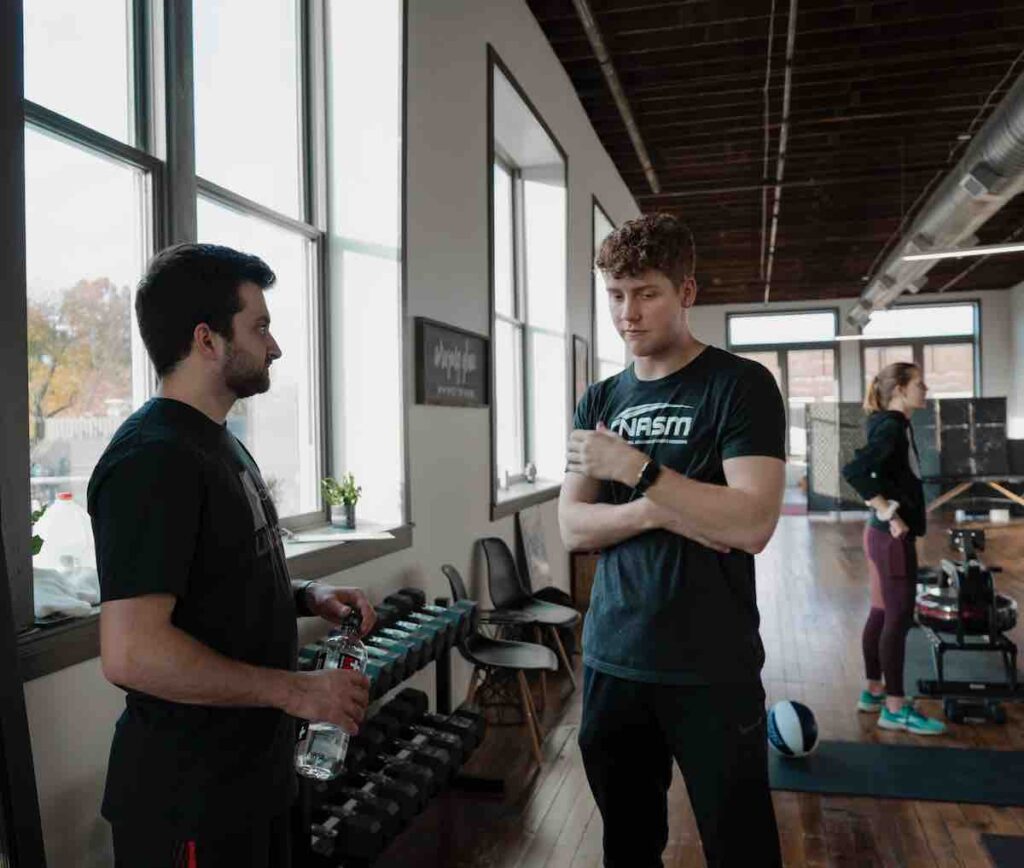If you’re anything like me, running started out of necessity, before quickly becoming a habit, an obsession, then an addiction. I now run or walk 10km daily and will shout about the life-changing benefits of running in the morning to anyone who will listen. However, I try not to overdo it.
This led me to ask: why is running so addictive?
In this article we’ll dive into the biological and psychological response to exercise addiction. At its heart is the phenomenon commonly known as “runner’s high.” When you exercise, your body releases endorphins – feel-good chemicals that act as natural painkillers and mood elevators. These endorphins are what give you that euphoric feeling during and after a run, enticing you to lace up and hit the pavement time and time again.
I’ve written also about the many health benefits of jogging and running daily. Personally, I find it to be an excellent stress reliever. In today’s fast-paced world, finding an outlet to escape daily stressors is crucial for maintaining mental wellbeing. Lacing up and heading out gives your mind the opportunity to clear itself of clutter, freeing you to refocus your thoughts and gain fresh perspectives on your life. That clarity becomes addictive.
We’ll also touch on other aspects of runner psychology, how to diagnose running addiction, and steps for reining it in.
The Science Behind Running Addiction
Endorphins and Neurotransmitters
When you run, your body releases endorphins and other neurotransmitters, such as dopamine and serotonin. These chemicals play an essential role in creating the sensation known as “runner’s high.” Endorphins act as natural painkillers, reducing discomfort and allowing you to push through physical barriers over many miles.
Dopamine and serotonin are responsible for regulating mood, enhancing feelings of happiness and wellbeing. As you run more frequently, your brain associates this physiological response with the activity, increasing your desire to run more often. Running is fun all of a sudden.
Any avid runner will know this feeling well, making it an easy decision to pound the pavement. It’s a feeling that dates back to when running was invented.
→ Related reading: Running as Therapy to Help Process Emotions
Peak End Rule – Why We Keep Coming Back For More
Ever sweore “never again” during a grueling marathon only to sign up for another shortly after finishing? The psychological trap – and reason why – is called ‘Peak end rule.’ A phenomenon that describes how we choose to remember an experience by its intense highs, rather than the event in its entirety.
Most mass participation sports events are usually interspersed with mini milestones and rewards, as well as a big crescendo at the finish. A running peak might be the sponsored refreshment station, a crowd of cheering spectators, an inflatable misting tunnel, or a kink in the route to take in an epic view. It’s also why event organisers create finisher villages with loud music, ornate medals and freebie stalls.
These moments are engineered to deliver feelings that stick with you for a long time. Emotional highs or lows (the peaks), as well as the climax (the end), that ultimately dictate our perception of what happened. As the extremes become more vivid, the mundane majority of the experience is pushed to the side.
Chasing “Awe” to Transform your Outlook on Life

I’ve long believed the daily currency of running to be wonder, even coining the phrase “Awe Runs.” Every mile rich in minor thrills waiting to be discovered – be they in nature, architecture, wildlife, or a beautiful vista.
What others view as compulsive behaviors, we runners know and reap the rewards. That is, the life-affirming sights and emotions that a good run gifts us. Stopping us in our tracks to offer a glimpse of a meaning greater than ourselves.
This “Awe Walks” study demystifies the feeling. It found that active awe walkers became more attuned at discovering and articulating awe vs the control group. They also developed a hunger for awe as they would embark on walks with fresh, childlike eyes. Wellbeing too, improved. The awe walkers reporting lower distress and physical pain.
Most strikingly, the researchers noted variance in the two groups’ photos. The awe walkers began to shrink relative to their surroundings. Their selfies less selfish. Seemingly developing a better understanding of the world outside of themselves.
Physical and Mental Health Benefits
Running is not only addictive due to the pleasing chemical reactions it triggers but also because of the numerous physical and mental health benefits. These include:
- Cardiovascular Health: Running consistently strengthens your heart and reduces blood pressure, ultimately decreasing the risk of heart disease.
- Weight Management: It helps you burn calories, lose weight and maintain a healthy lifestyle.
- Mental Health: Regular exercise has been shown to decrease symptoms of anxiety, depression, and stress.
- Bone and Muscle Strength: Running puts stress on your bones and muscles, which encourages them to grow stronger.
- Maximize the Good Days: There’s something magical about jogging in the Summer, with the sun shining down on you.
As your body experiences the positive effects of running, it becomes more motivated to continue the activity, ultimately leading to an addictive habit.
💌 Inspiring Run Stories.. in Your Inbox
How to Recognize Running Addiction
Common Signs and Symptoms of Running Addiction
People are becoming more aware of the signs of a running addiction. Look out for these common symptoms:
- An uncontrollable urge to run, even when it negatively affects other areas of your life
- Experiencing withdrawal symptoms, such as irritability or anxiety, when unable to run
- Feeling guilt if you miss a workout
- Continually increasing your running distances or pace to feel the desired effects
Overtraining and Declining Performance
Overtraining is another red flag for an addiction to running. Consistently pushing yourself beyond your limits can lead to the following issues:
- Persistent fatigue, even with adequate rest
- Declining performance in workouts
- Insomnia or difficulty sleeping
- Weakened immune system
- Hormonal imbalances
Listening to your body and incorporating rest days is essential to prevent overtraining.
Niggling or Won’t-Go-Away Injuries
Running addiction can result in injuries due to excessive training. Some common running-related injuries include:
- Stress fractures
- Shin splints
- Plantar fasciitis
- IT band syndrome
Be attentive to your body’s signals, and do not ignore pain or discomfort while running. Seek professional guidance if you notice any persistent issues. Many runners also look to mix up their cardiovascular exercise to work different muscle types.
Remember, maintaining a healthy balance between your passion for running and the rest of your life is the key to a sustainable and enjoyable exercise routine. Listen to your body before it becomes an unhealthy obsession.
Negative Consequences
Physical Impact and Injuries
Any physical activity can become addictive, so it’s important to be aware of the potential physical consequences.
Pushing yourself too hard on a regular basis can result in injuries like stress fractures, tendonitis, and muscle strains. Overtraining and inadequate rest can also result in exhaustion, which can further increase the risk of injury. Aim to balance your running habits with rest and proper stretching to mitigate these risks.
Mental Health Concerns
While running can boost your mood and provide stress relief, it can also lead to negative mental health consequences if it becomes obsessive. If performing a high number of vigorous runs weekly, running beyond a healthy endurance level, you may be at risk for developing anxiety or even depression. In some cases, running may also contribute to the development of eating disorders, as individuals may start to use it as a form of extreme weight control. Make sure to keep your running habits in a healthy balance.
Social and Relationship Issues
Being dedicated to running may appear noble, but it’s essential to avoid becoming consumed by the sport to an extent that it impacts social relationships. Some runners may unintentionally alienate friends and family as they prioritize running above all else. Maintaining self-awareness and striking a balance between your athletic goals and personal relationships is vital.
Preventing and Treating Running Addiction
Moderation and Balance – Even Athletes Need Rest
To prevent running addiction, maintain a healthy balance in your training routine. Incorporate a variety of physical activities, not just running, to keep your fitness journey enjoyable and well-rounded. It’s crucial to listen to your body and know when to slow down or take a break.
- Set realistic goals for yourself
- Stick to a regular schedule, and avoid overtraining
- Include rest days in your exercise routine
- Mix in other forms of exercise like strength training, swimming, or yoga

Keeping a journal can also be beneficial. Track your running progress, feelings, and any warning signs of compulsive behavior. This can help you gain insight into your running habits and ensure that you maintain a healthy relationship with this form of physical activity.
Seeking Professional Help – Talk Up and Set a Dedicated Exercise Plan
If you find yourself running through injury or experiencing withdrawal-like symptoms when not running, it’s time to seek professional help. A licensed therapist or a certified fitness professional can provide guidance and support for addressing your addiction. They can help you:
- Spot the signs of running addiction
- Develop healthier coping strategies
- Create a well-balanced exercise routine
- Work through underlying issues contributing to the addiction
Remember that there’s no shame in seeking help. Addressing your running addiction not only benefits your overall health and wellbeing but also ensures a more positive and sustainable fitness journey.
Tailoring Your Approach Based on Age
Youth and Adolescents – Run For the Fun of It
At this stage of life, it’s important to encourage a healthy relationship with running. You should focus on making it a fun and enjoyable activity, rather than a competitive sport. Incorporating games and group activities can help younger runners stay engaged and motivated. It’s also essential to monitor their progress and address any potential injuries or issues early on.
- Encourage a fun, non-competitive atmosphere
- Focus on group activities and games
- Monitor progress and address issues early
Adults – Being Addicted to Running is Not Taboo
As an adult, you can take advantage of the “runner’s high” that often comes with consistent running. This natural release of endorphins can make running addictive and enjoyable. To make the most of this period, you should set realistic goals and gradually increase your running distance and intensity. Don’t forget to listen to your body and give it ample time to recover between sessions.
My top tips for anybody overdoing their running:
- Set realistic goals
- Gradually increase distance and intensity
- Listen to your body and allow for recovery
- Mix up sports to work different muscle groups
- Run as part of a group once a week
So, whatever your reasons for running more – be it for pleasure, the physical benefits, competitiveness, or mental health reasons – it’s easy to get carried away and overdo it. A more controlled approach is called for.
Be awake to the signs of exercise addiction and remember a healthy lifestyle is a balanced lifestyle. Maximize the benefits of jogging everyday and good luck on your running journey!

